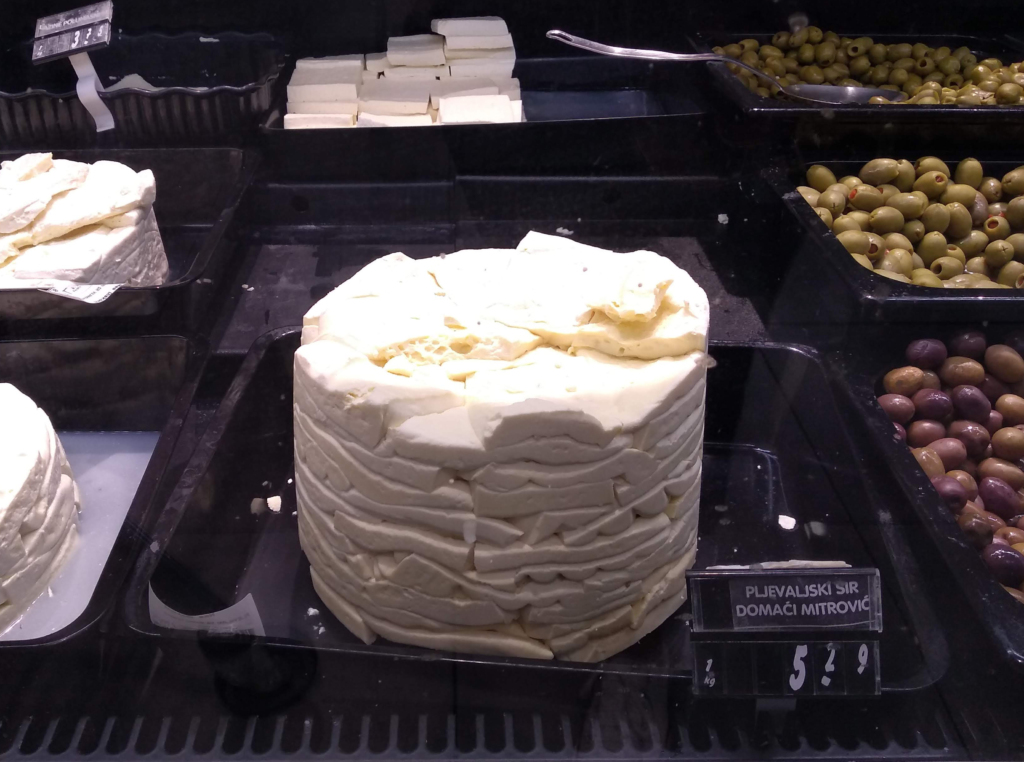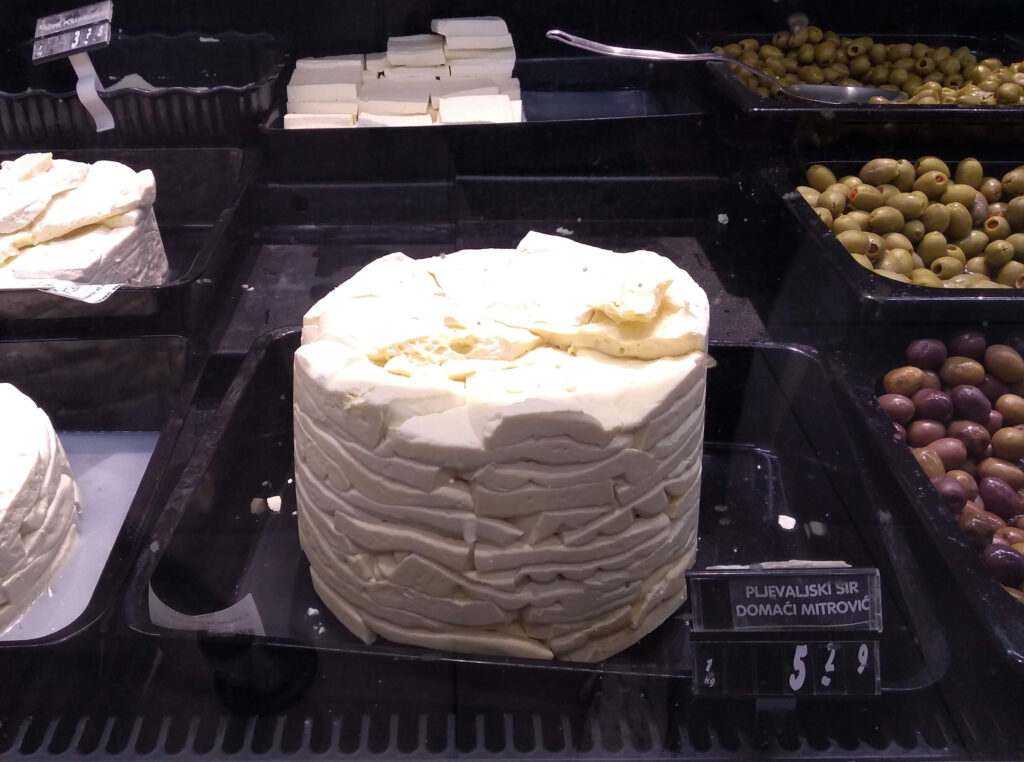Pljevaljski sir, a semi-hard, yellowish cheese made from cow’s milk and produced in Montenegro’s Pljevlja region, has recently made headlines for ranking higher than the famous Roquefort cheese and Mozzarella in the World Cheese Awards. In this blog post, we will discuss the history and unique flavor of Pljevaljski sir, the World Cheese Awards, and what this recognition means for Montenegro’s cheese industry and tourism. We will also explore some of the dishes that use this award-winning cheese.

The Cheese that Beat Mozzarella
Pljevaljski sir is made using traditional methods, including heating and curdling the milk before fermenting it in wooden barrels. The cheese has a distinct flavor that is both tangy and slightly sweet, as well as a creamy and crumbly texture.
This year, Pljevaljski sir ranked higher than the renowned Roquefort cheese, which is a major achievement for a small country like Montenegro. The World Cheese Awards is one of the most prestigious cheese contests in the world, with thousands of entries from all over the globe.
Judging Criteria and the Competition
The judges evaluate each cheese based on a range of criteria, including flavor, texture, aroma, and appearance. Pljevaljski sir impressed the judges on all fronts, which is why it ranked so highly in the competition. The recognition in this competition is a testament to the quality of the cheese and its unique flavor.
The Significance of the Award
For Montenegro, this recognition is a significant achievement that highlights the country’s unique culinary offerings. Cheese production is an essential part of the Pljevlja region’s economy and cultural heritage, and this award can help to boost the local cheese industry further.
Pljevaljski sir is often used in traditional Montenegrin dishes, such as kačamak, a hearty cornmeal porridge that is typically served with cheese and cream. It can also be used as a topping for salads, pizzas, and pastas. If you are interested in Montenegrin delicacies, see our article on the top 5 items you have to try when in Montenegro.
Despite the award, Montenegro is still disappointed that it did not place first in the competition. For the record, that honor went to Parmigiano Reggiano, a fine cheese in our opinion. However, the country is still proud of its home-made cheese and plans to expand its production to reach even greater heights.
Conclusion
In conclusion, Pljevaljski sir’s ranking in the World Cheese Awards is a remarkable achievement for Montenegro. This recognition demonstrates the country’s dedication to producing high-quality cheeses using traditional methods and unique flavors. With this success, Pljevaljski sir is sure to become even more popular among cheese lovers worldwide, which can benefit the local economy and tourism industry. Whether enjoyed on its own or as part of a dish, Pljevaljski sir is a cheese that deserves recognition and appreciation.






